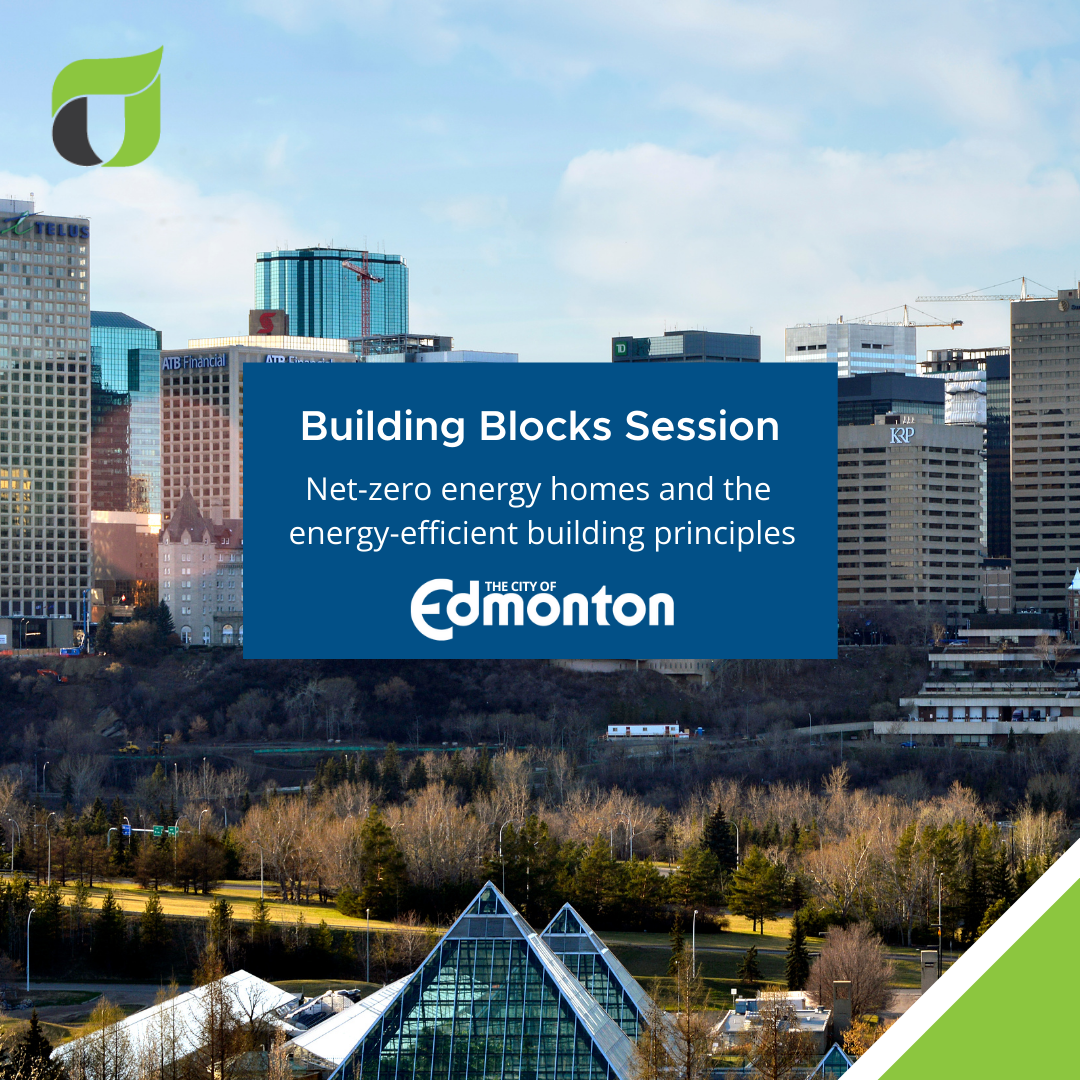With the Energy Transmission Recommendation for all new construction to be Carbon neutral by 2030, education has become the industry’s top priority to help builders develop the capacity and skills to produce high-performance buildings – thus The Building Blocks sessions were formed. The Building Blocks aim to build an industry network to share ideas and create a forum for conversations in Edmonton to be able to achieve this goal.
Last March 30, 2021, we had the opportunity to take part in The Building Blocks sessions to discuss the relevance of Net Zero Homes in Edmonton. Oasis Engineering’s very own Sikander Singh, together with Sheffie Kalat-Malho of Net Zero Developments, shared their insights in Net Zero Homes & Energy Efficient Building Principles.
The webinar discussed differences between code net and net zero homes, as well as the components used to achieve net zero. Sikander elaborated on solar energy, operation and maintenance, energy efficiency, and most importantly, its tangible benefits connecting to the grid.
Just a few years back, net zero homes are more complicated and expensive to build, not to mention, they come with extensive difficulties in operations and maintenance issues. Because technology is quick to evolve, net zero homes have become more accessible and affordable, have higher resale values, have avenue to export surplus on-site energy production (sell the energy back to utility providers), and an overall ability to help your home pay its bills on sunny days.
“Ten (10) years after you’ve paid out that capital cost for achieving net zero energy, you’re cash flow and utilities for the rest of your life, so you’re essentially your own utility provider” Singh shared.
Two (2) case studies on local, Edmonton-based net-zero energy projects were shared by Sheffie to further support the aforementioned claims. These included design considerations, actual performance vs. design, and valuable lessons learned to share with the building community.
Lastly, Sheffie emphasizes on the long-term benefits and overall positive impact of net zero homes: “The cost of action now is dwarfed by the cost of action in the future… If we deal with it now rather than later in the future, then we could easily lessen the impact… The sooner we adapt, the better.”



